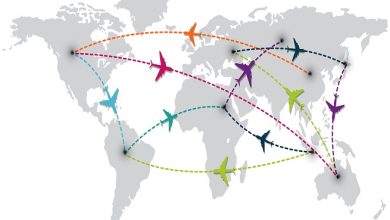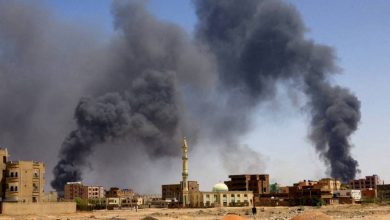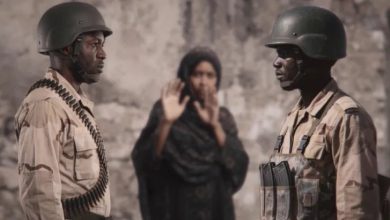Reports
Economic Conference Concludes with Recommendations

Report – Agencies
The Sudanese Ministry of Finance and Economic Planning announced on Wednesday the conclusion of the First Economic Conference to address the challenges of war, held in Port Sudan under the theme: “Together for Sustainable Economic Recovery”. The two-day event was organized by the Ministry and inaugurated by Chairman of the Sovereignty Council, General Abdel Fattah al-Burhan. It saw extensive participation from ministers, regional governors, state officials, diplomatic missions, and international and regional organizations, alongside experts and specialists.
Day One Sessions:
The first day of the conference presented specialized research papers and shared economic experiences from various countries to formulate plans for sustainable economic stability amidst the war waged by the Rapid Support Forces (RSF) militias.
Key Papers:
Dr. Abdel Moneim Mohamed El-Tayeb delivered a paper analyzing the banking sector’s state under the war’s impacts, highlighting challenges faced by public, private, and specialized banks, as well as the closure of many Central Bank branches in war-affected states.
Abdelrahman Mohamed Abdelrahman discussed the Central Bank’s role in managing monetary policy during the war.
Amal Al-Kabeer from the Ministry of Finance presented on “War Challenges and Resource Mobilization Efforts.”
Engineer Mohamed El-Tayeb Aboukasawi explored the role of financial technology in managing public funds.
Closing Session:
Professor Ibrahim Ahmed Onour concluded the first day’s discussions with a paper on the role of gold revenues in managing monetary policy.
The evening session, chaired by Dr. Mohamed Bashar, Undersecretary of Planning at the Ministry of Finance, included four papers:
1. Role of Insurance Companies in War Compensation – Salah El-Din Mousa of Shikan Insurance detailed Sudan’s pioneering Islamic insurance experience.
2. Public-Private Partnerships – Ameen Abu Al-Qasim reviewed Sudan’s experience with public-private collaboration.
3. Investment Challenges and Opportunities in Sudan – Dr. Monjed Abbas examined potential areas for investment, impediments, and necessary reforms.
4. External Trade Challenges Amid War – Manal Siddiq of the Ministry of Trade proposed solutions to ongoing trade difficulties.
Day Two Sessions:
The second day expanded on key issues with additional papers, including:
The Central Bank’s Role in Managing Monetary Policy Amid War.
Challenges Facing the Banking Sector: Diagnoses and Solutions, presented by Dr. Abdel Moneim Mohamed El-Tayeb.
Gold Revenues in Monetary Policy Management, by Professor Ibrahim Ahmed Onour.
Discussions also included:
Insurance Companies’ Role in War Compensation,
Financial Technology in Public Fund Management,
Evaluation of Government Enterprises,
Administrative and Institutional Reform,
Agricultural and Industrial Challenges Amid War, and
The State of Public Services under Current Circumstances.
Two workshops were also held on “Gold Production and Environmental Marketing Challenges” and “Environmental and Climate Change Challenges.”
Key Challenges Highlighted:
Addressing the conference’s opening session, General Abdel Fattah al-Burhan underscored the need for expert-driven solutions after nearly two years of war that have devastated Sudan’s economy and people. He stressed the importance of actionable recommendations to alleviate the burden on citizens and support the upcoming national budget.
Al-Burhan commended public sector workers for their resilience and thanked private-sector contributors and international allies for their ongoing support.
Finance Minister’s Address:
Dr. Jibril Ibrahim, Minister of Finance and Economic Planning, highlighted how war necessitated exceptional measures. The conference aimed to evaluate financial policies and engage experts in crafting sustainable solutions.
He noted that the war disrupted ambitious development plans, necessitating austerity measures and causing significant loss of revenue, human capital, and data infrastructure. Dr. Ibrahim expressed commitment to fully honoring government employees’ salaries in the 2025 budget and emphasized the importance of financial federalism.
Central Bank Governor’s Insights:
Dr. Barai Siddiq, Governor of the Central Bank of Sudan, introduced a comprehensive strategy for economic recovery that prioritizes:
Stabilizing exchange rates,
Restoring electronic payment systems,
Monitoring government borrowing, and
Managing delayed export revenues.
He announced the creation of a $1 billion fund for strategic goods and highlighted steps to combat currency counterfeiting, including the rollout of newly designed currency in collaboration with state institutions.
Conference Recommendations:
The conference concluded with a set of comprehensive recommendations addressing all discussed topics, aimed at transforming them into policies, directives, and legislation to mitigate the war’s economic crisis and pave the way for post-conflict recovery.
Source: Sudanese Echoes.



